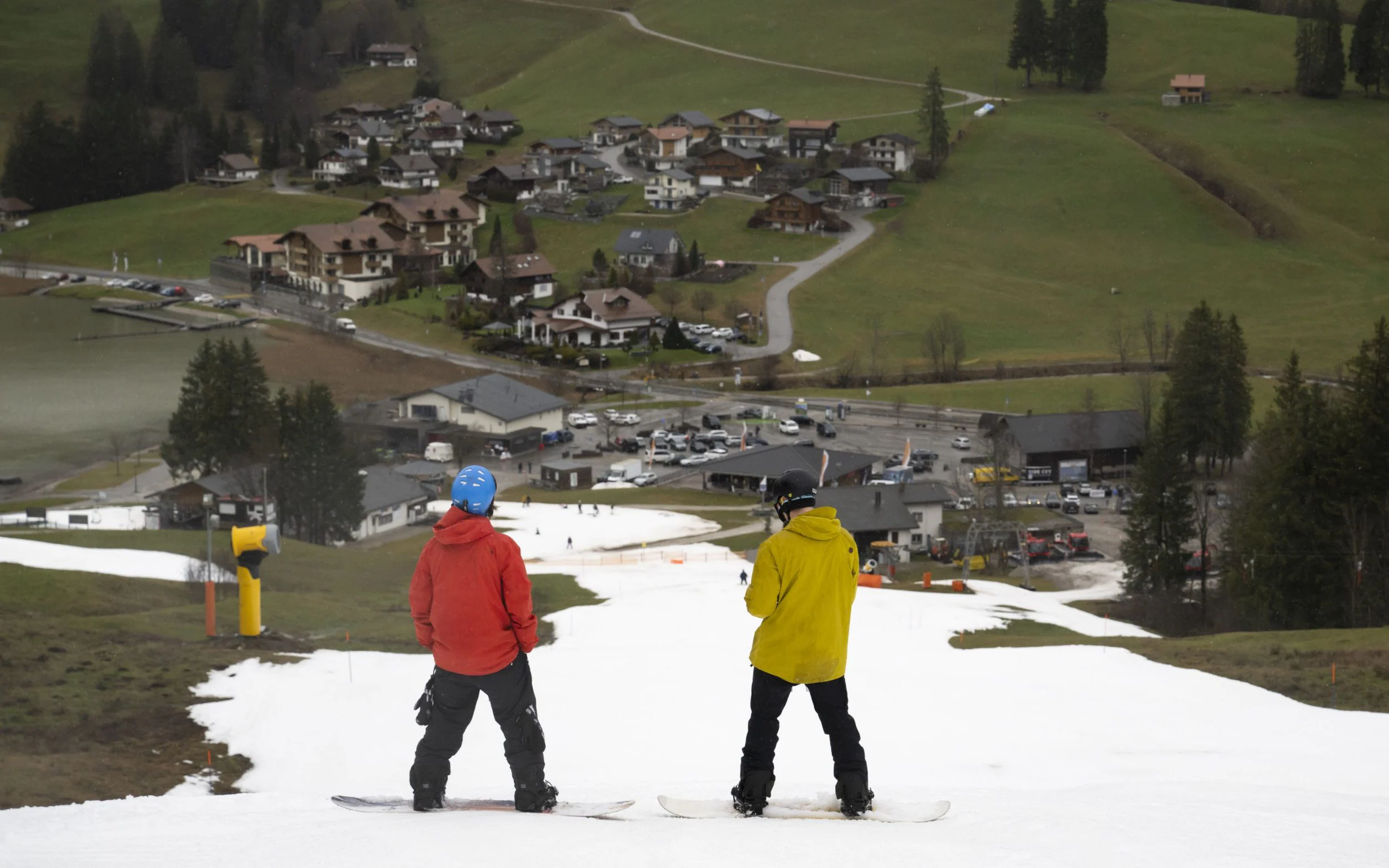Rising temperature ranges pressed by regional climate situation adjustment are requiring ski motels worldwide to problem the chance for a grim future: one with out snow-covered inclines. The latest file warmth waves in Europe, which offered Tees atmosphere all through the holidays, led to in depth lodge closures, inflicting some to go looking quite a few sources of earnings like biking in addition to climbing. Snowboarding Deals With a Not Sure Future as Winters Warmth.
“It involved terrible over Xmas in addition to New Yr proper under, probably the most terrible I’ve seen in a really very long time,” Andrea Scherz, whose family has owned and operated the Swiss resort Gstaad Palace given that Forties, tells Mark Ellwood of Robb Report. “People nonetheless cherished themselves, nevertheless let’s assume for the next 5 years we not at all get a white Christmas proper right here. That may impact my enterprise.”
Resorts throughout the Alps and Rocky Mountains alike are struggling to keep up up with these changes. Nevertheless their short-term choices, like artificial snow, “sarcastically add additional CO2 to the ambiance and are making the native climate disadvantage worse,” Marie Cavitte, a glaciologist and native climate researcher on the Catholic School of Louvain in Belgium, tells BBC Future’s Isabelle Gerretsen.
Snow cannons and plows are extraordinarily energy-intensive, and for the time being, no snow machines run on renewable vitality, per the publication. A contemporary analysis from the School of Basel in Switzerland implies that snowmaking could improve water consumption by about 80 % at one among many nation’s largest ski resorts by the highest of the century, rising from the 300 million liters of water utilized in a season proper now to 540 million liters.
Some Alpine resorts have even been masking glaciers with fleece blankets all through summers in an attempt to mirror daylight and forestall them from melting. Whereas this method could cut back snowmelt by 50 to 70 %, it’s extraordinarily expensive—masking all of Switzerland’s 1,000 largest glaciers would worth spherical $1.5 billion yearly, per BBC Future. Winter tourism generates an estimated $5.7 billion per yr in Switzerland.
Along with the resorts, expert athletes have moreover suffered. This yr, racers have seen competitions canceled, an absence of pre-season snow for teaching and the specter of restricted snowmaking due to rising temperatures. Conditions have gotten so poor that this week, nearly 200 athletes signed a letter to the Worldwide Ski and Snowboard Federation (FIS) demanding it take movement referring to native climate change.
“It’s about time to deal with a really very important topic,” ski racer Aleksander Aamodt Kilde said after incomes a silver medal in downhill on the World Alpine Snowboarding Championships on Sunday, per the Associated Press. “We see that the world is altering. We see moreover the impression of our sport. … I want the long term generations to experience winter and to have the flexibility to do what I do.”
The letter calls on the FIS to determine to reaching web zero for all its operations and events by 2035, making choices just like a “geographically inexpensive race calendar” which may reduce emissions from excessive air journey. This yr, for example, European athletes flew to Colorado for races in Beaver Creek and Aspen, which have been timed three months apart no matter being positioned merely 31 miles from each other. “Planning these two races one after the other would in the reduction of roughly 1,500 tons of CO2,” per the letter. The athletes moreover recommend shifting the season later to account for long-term environmental changes.
“Most of the people opinion about snowboarding is shifting in course of unjustifiability,” the letter states. “This can even carry the enterprise into hassle.”
From 1982 to 2016, the snow season shortened by a median of 34 days and snow cowl dropped by a median of 41 % in some areas of the USA. The Alpine snow season shrank by 38 days from 1960 to 2017. Now, some Swiss mountainsides have gotten so warmth they’re being colonized by invasive cacti.
“I really feel we have now really bought to see that one factor is dying,” Michelle Furrer, supervisor of a guesthouse throughout the Swiss Alps, informs the New York Cases’ Erika Solomon. “We have now really now to only settle for that, after which we’re capable of try to assemble—to go looking out one level else.”
